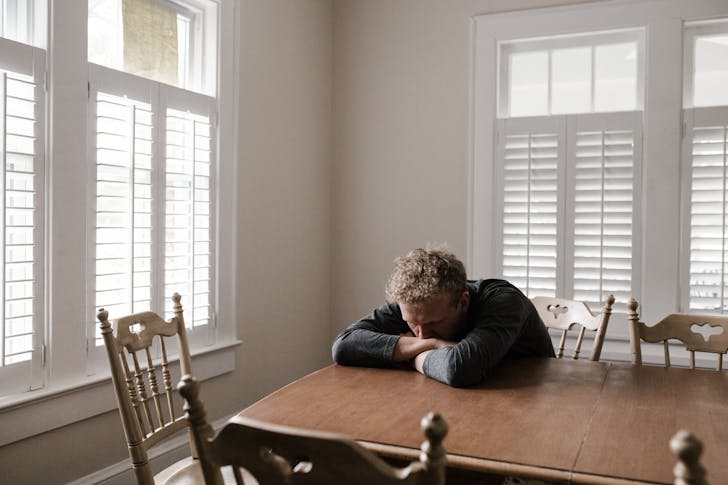
What Is Unipolar Depression? Here’s What You Need to Know Right Now

Depression casts a long shadow over many lives, with symptoms that affect everything from our energy levels to our ability to enjoy daily activities. Among the various types of depression, unipolar depression stands out due to its particular characteristics and impact. So, what is unipolar depression? This comprehensive guide will help you understand the essentials of unipolar depression.
What Is Unipolar Depression?
Unipolar depression, also known as major depressive disorder, refers to a state where an individual experiences persistent depressive episodes without the manic or hypomanic phases that characterize bipolar disorder. This distinction is crucial because it influences both the treatment approach and the disorder’s management. The term ‘unipolar’ itself highlights the presence of one “pole” or mood state, which is the depressive state.

Freepik | Unipolar depression is a state where an individual experiences persistent depressive episode without the manic or hypomanic phases that characterize bipolar disorder.
The Common Symptoms of Unipolar Depression
Recognizing the symptoms of unipolar depression is the first step towards seeking help. Here are some of the most common signs:
- Persistent Sadness or Emptiness: A pervasive feeling of sadness that doesn’t seem to go away.
- Loss of Interest: A significant decrease in interest or pleasure in once enjoyable activities.
- Irritability and Restlessness: Increased irritability, frustration, or restlessness over minor issues.
- Changes in Sleep and Appetite: Noticeable changes in sleeping or eating patterns, either too much or too little.
- Cognitive Difficulties: Experiencing difficulty thinking, concentrating, or making decisions.
- Thoughts of Death or Suicide: Recurring thoughts of death, suicidal ideation, or suicide attempts.
What Causes Unipolar Depression?
Pinpointing a single cause of unipolar depression is challenging as it often results from a complex interplay of genetic, environmental, and psychological factors. Life events such as the loss of a loved one, significant life changes, or chronic stress can trigger depressive episodes. Biological factors like chemical imbalances in the brain or underlying medical conditions like thyroid problems may also play a role. Understanding that depression can stem from multiple sources is key to addressing it effectively.

Andrew Neel | Pexels | Life events such as the loss of a loved one, significant life changes, or chronic stress can trigger depressive episodes.
Diagnosis of Unipolar Depression and Who Can Help
While unipolar depression might seem daunting to diagnose, it’s more straightforward than many think. A primary care provider can evaluate symptoms through a detailed conversation about your mood, lifestyle, and medical history. They might also perform physical exams and tests to rule out other conditions that could be causing your symptoms. Mental health professionals such as psychiatrists, psychologists, and counselors are also equipped to diagnose and treat depression.
Effective Treatments for Unipolar Depression
Treatment for unipolar depression typically involves a combination of the following:
- Medication: Antidepressants, particularly SSRIs, are commonly prescribed to help correct the chemical imbalances that may contribute to depression.
- Psychotherapy: Therapy provides tools to cope with stress, rethink negative patterns, and improve relationships.
- Lifestyle Adjustments: Regular physical activity, a nutritious diet, sufficient sleep, and maintaining a structured routine can significantly improve mental health.
- Social Support: Engaging in meaningful interactions and maintaining connections with others can provide emotional sustenance and reduce feelings of isolation.

Freepik | Psychotherapy provides tools to cope with stress, rethink negative patterns, and improve relationships.
While unipolar depression can be a formidable foe, understanding its nature and recognizing the available treatments can empower you to seek the help needed to manage this condition effectively. If you or someone you know is struggling with symptoms of depression, consulting with a healthcare provider is a crucial first step towards recovery.
More in Mental Health
-
Is It Safe to Travel to Paris? Essential Tips for Tourists
When considering a trip to Paris, one of the first questions that often arises is, “Is it safe to travel to...
June 20, 2024 -
Hematoma vs Bruise: What Is the Difference?
When it comes to injuries, hematoma vs bruise are often used interchangeably, but they refer to different medical conditions. Understanding the...
June 12, 2024 -
A Comprehensive Guide on How to Heal Anxious Attachment Style
If you often find yourself seeking constant reassurance from your partner or requiring endless validation to feel secure, you may be...
June 1, 2024 -
Why Is My Skin Peeling on My Face After Skincare? Here’s What You Need to Know
Experiencing skin peeling on your face after implementing a skincare routine can be perplexing and frustrating. This phenomenon, where the skin...
May 23, 2024 -
What Is a Mental Edge, and How Do You Get It?
Have you ever wondered why some individuals seem unshakably confident under intense pressure, finding a way to excel when it matters...
May 15, 2024 -
When to Worry About Varicose Veins? Here’s What You Need to Know
Varicose veins are a common issue, affecting about 20% of adults. They’re usually seen as unsightly blemishes on the legs but...
May 12, 2024 -
Why Is Discipline Important: The Ultimate Guide to the Importance of Discipline
Discipline is undoubtedly one of life’s most crucial character traits. It shapes how we approach tasks, manage our time, and...
May 3, 2024 -
Have I Fallen Out of Love or Am I Depressed? Everything You Need to Know
Have I fallen out of love or am I depressed? You’re not alone in this query. In the diversity of human...
April 26, 2024 -
What Does Lung Cancer Breath Smell Like?
Cancer is one of the most formidable diseases of our time, characterized by the uncontrolled growth of cells that invade and...
April 20, 2024















You must be logged in to post a comment Login